Home |
Contents |
Photos |
News |
Reviews |
Store |
Forum |
ICI |
Educators |
Fans |
Contests |
Help |
FAQ |
Info


Why Write About Native Americans?
(10/12/95)
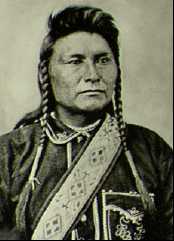
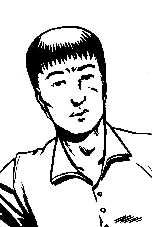
Why, then, make so great ado about the Roman and the Greek, and neglect the Indian?
Henry David Thoreau, journal, 1857
The mythology of America is based on the denial of the indigenous.
Winona LaDuke (Anishinaabe), speech, 9/28/93
To understand the making of Anglo-America is impossible without close and sustained attention to its indigenous predecessors, allies, and nemeses.
James Axtell, "Europeans, Indians, and the Age of Discovery in American History Textbooks," American Historical Review
Our treatment of Indians...still affects the national consciousness....It seems a basic requirement to study the history of Indian people. Only through this study can we as a nation do what must be done if our treatment of the American Indian is not to be marked down for all time as a national disgrace.
John F. Kennedy
Distortion of Indian history distorts [white] American history as well. The two are intertwined.
Ward Churchill (alleged Creek/Cherokee), Columbia Chronicle
The Indian plays much the same role in our American society that the Jews played in Germany. Like the miner's canary, the Indian marks the shift from fresh air to poison gas in our political atmosphere; and our treatment of Indians, even more than our treatment of other minorities, marks the rise and fall of our democratic faith.
Felix Cohen, modern founder of federal Indian law
What we have done to the peoples who were living in North America is our Original Sin.
Sol Tax, anthropologist, foreword to This Country Was Ours
*****
Why Native Americans?
As the above quotes suggest, the Indian story is essential to the American story. We've derived our national character by defining ourselves against Indians and as Indians. "Indians 'r' us," as I wrote in America's Cultural Roots.
This justification dawned on me only years after I conceived my multicultural comic book featuring Native Americans. The path to the present was more involved, as I explained to the following correspondent:
>> What made you choose Native American as your sole focus, rather than a revolving multicultural setting <<
When I was casting about for a comic-book project a few years ago, it struck me that Native Americans were involved in, sometimes at the center of, many of our cultural arguments: "family values," religion, poverty, the environment, the role of government, racism, multiculturalism. And I'm not the only one who's ever had such a thought. Read the following quote, which I found after making my choice:
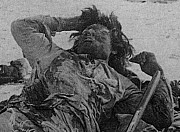
We've all been exposed to the same value system, the same perspective on history. The lesson that is there, the very important lesson today, for all people, is to realize the value of an alternative perspective. And that is why we are here. That is why the Creator allowed some of us to remain, in spite of all the attempts to destroy us. Every tribe has had their Great Swamp in that process. Every tribe has had their Sand Creek. Every tribe has had their Wounded Knee. The list is endless, and we've all shared in that same experience.
We all have a purpose, a role in life, and the Creator, in all of his wisdom, saw fit to spare us—we all could've been burned alive in the Great Swamp, we all could've been slaughtered in that war—but we were left here for a reason, and I believe that part of that reason is to be your conscience for this society, to prevent those same mistakes from continuing to be repeated over and over. That's what I see as my purpose, as the purpose of all of our native people who will stand up and continue with that spirit that King Phillip, Pontiac, Geronimo, all our great leaders have had.
Tall Oak (Narragansett) in the 500 Nations video
The multicultural perspective
That's what I wanted to give mainstream society...an "alternative perspective." That's what I wanted to explore...the "conscience" of America. For these reasons, perhaps Tall Oak would agree Indians were and are the perfect subject to write about.
Other quotes support the idea of bringing an alternative perspective to the mainstream:
Leslie Marmon Silko is one of those offering to help with this Peace Corps project, bringing light into darkness. She opens one of her charitable events, an essay ("Language and Literature From a Pueblo Indian Perspective," included in "Critical Fictions: The Politics of Imaginative Writing," edited by Philomena Mariani), by issuing a bemused shrug of an invitation: "I ask you to set aside a number of basic approaches that you have been using, and probably will continue to use, and instead, to approach language from the Pueblo perspective, one that embraces the whole of creation and the whole of history and time."
To get to that new language, that new vision and way of being that might (maybe, who knows?) heal us and our world, we need to set aside what we will not be able to set aside; we need to give up habits of mind so deep and prolonged they very nearly constitute what we are. To see differently, we must be and do differently; and to be and do better we must see better.
It's all one circle, and we are outside it. We'll "probably" stay outside it—but maybe not.
James R. Kincaid, "Who Gets to Tell Their Stories?," New York Times Book Review, 5/3/92
We want to maintain ourselves as we are so we can contribute our differences, our particular understanding, to both the national community and the global society.
LaDonna Harris (Comanche), "Native American Reader: Stories, Speeches and Poems"
"You must [also] understand and forgive the people who caused these disasters and destruction, and their descendants. Because the irony of it all is that you're also one of them, as much as you're a descendant of the conquered. It won't be easy but it has its rewards....It gives you a position a little apart from the mainstream of North American life, and considering the direction in which that stream seems to be flowing these days, that isn't a bad place to be. The main thing to remember is that being an Indian isn't an excuse for anything, unless it's accompanied by the cultural disadvantages which afflict most native people these days.
Bill Reid (Haida), letter to his grandson, quoted in Bill Reid by Doris Shadbolt
I take my bearings from the reality that these are people with an extraordinary knowledge of both the promise and the tragedy of this nation. "When I was about 30 years old," A. David Lester, director of CERT and a Muscogee Creek Indian, remembers, "the Blackfeet Indian leader Earl Old Person told me, 'One of our responsibilities is to teach our neighbors what it means to be American.' "
Patricia Nelson Limerick, Live Free and Soar, NY Times, 6/29/05
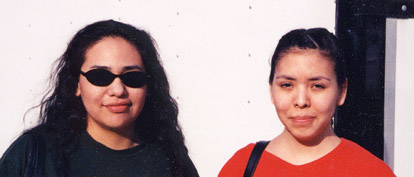
Nineties proved the need
I first conceived PEACE PARTY in 1990 or so. I began reading Indian books and newspapers, talking to Indian people, and visiting Indian communities. I concentrated on the Hopi and Pueblo cultures because their philosophies were especially relevant to today's world. And because they hadn't been done to death like the stereotypical Lakota warrior.
But I wouldn't simply say Indian beliefs were good and the Western beliefs were bad. That would be pretty silly coming from someone who's been a math major, librarian, computer programmer, businessman, and publisher—all vocations generally associated with Western culture. No, I'd show the good and bad of both cultures, by showing characters torn between them. In short, I'd take a multicultural perspective on America.
Years later, I'd say a multicultural perspective is more necessary than ever. Our "truths" began unraveling in the 1960s, when people began to question authority. Suddenly we learned that our government wasn't necessarily of, by, or for the people. We learned that we couldn't exploit the environment indefinitely. We learned that we could lose wars, suffer economic malaise, or be held hostage.
Since the '60s there's been a conservative backlash against this outpouring of change. People are afraid. Their worldviews have been shattered and "truths" are no longer self-evident.
I'd say we can attribute many of the developments since then to this clash of values—what Pat Buchanan labeled the cultural war in 1992. Women, minorities, and gays are still demanding equal rights. Third World people are demanding freedom from male-dominated societies, corrupt national governments, and onerous foreign debt. People in Palestine, East Timor, and Kosovo are demanding freedom, period.
In America we're also fighting these cultural wars. The issues are in the news constantly. The Rehnquist-led Supreme Court has curtailed our civil rights. Synagogues and churches get torched by arson. The police employ racial profiling. Gay student Matt Shepard was crucified. The Rodney King case. The OJ case. The Littleton shootings. And conservatives think the Ten Commandments and school prayer will solve our problems.
Through a mirror, darkly
Native Americans provide a lens through which to view these problems because they're involved in political, economic, and social struggles. Their traditional, non-Western values are "alien" to such core beliefs as "one nation under God," "looking out for No. 1," and "love it or leave it." Their existence is a continuing challenge to the idea of America as the bastion of liberty and justice for all.
As I noted in America's Cultural Mindset our values are inherent in almost everything we say and do. Problems like racism, intolerance, and selfishness aren't aberrations, they're enshrined in the fabric of America. They're part and parcel of "a culture that confirms the stereotype of the individual as solitary gunslinger and society as a hostile frontier," as one LA Times article put it.
As an example, consider the San Francisco mountains in Arizona—not coincidentally, the birthplace of Peace Party. The Anglo-American perspective is that such mountains exist for us to profit from. Our competitive mentality tells us that if we don't exploit these resources, someone else will. "Use them or lose them" is the attitude. So business interests want to expand the Snowbowl ski resort there.
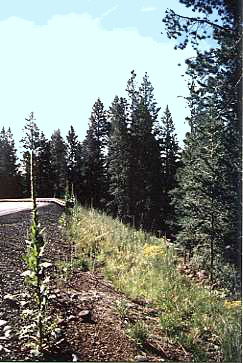
The alternative perspective is that these mountains are valuable for their own sake. We shouldn't buy and develop them just because we can. Environmentalists might say it's because natural resources are finite or because biodiversity is worth preserving. To the nearby Native people, the mountains are simply holy, the sacred home of their kachinas. The peaks are a religious site and should be left alone for that reason.
So a single issue (the Snowbowl expansion) raises a conflux of economic, environmental, and religious freedom questions. Similarly, many Native American issues confront the predominant American belief system. How we deal with these issues is the measure of our nation.
For more on the conflicting views of the Snowbowl, see Editorial Trivializes Native Belief in Sacred Mountains.
More relevant than ever
As noted by Patrisia Gonzales and Roberto Rodriguez in "Revising the End of the 3rd Millennium," 12/31/00, Native cultures are relevant to our past, present, and future. Native history teaches us what to avoid and how to avoid it:
David Stuart, a University of New Mexico professor and author of "Anasazi America" (University of New Mexico Press) posits that if the United States doesn't mend its unequal and "inefficient" ways, it won't be around to ring in the fourth millennium.
.
.
.
Stuart has calculated that under the best-case scenario, the United States has less than 1,000 years to live. He bases his predictions on the study of the Anasazi, a people that generally inhabited and dominated the region that is today the "Greater Southwest."
The Anasazi, he notes, dominated the region — with Chaco Canyon at its center — for some 600 to 700 years but collapsed at the end of the 11th century because their society was guilty of misuse of farmland, economic inequalities between elites and the farmers, and "an inability to deal with climatological catastrophe." At its height, Chaco consisted of an alliance of 10,000 to 20,000 farming hamlets and 100 spectacular "great houses."
Essentially, Stuart posits that in a worst-case scenario, the inefficiency of our society and the frenetic pace at which we're eating up farmland, polluting and wasting water may actually shorten our historical life span by much more. The United States may be but a blip on the historical radar.
Stuart notes that the Anasazi didn't actually disappear, but rather evolved generally into what are today the peoples or Pueblos of the Greater Southwest and Northern Mexico. "The Anasazi made mistakes we're going to make. They blew it once, and they changed the way they lived."
If we are to survive, we too must emulate what the Pueblos have done, he concludes. "Those who survive, win."
Up close and personal
We believe that one of the most influential vehicles that exists to send accurate portrayals of our people into the popular culture is the entertainment industry.
Ray Halbritter, Nation Representative and CEO for the Oneida Indian Nation, in On the Celebrity Trail: Media Matters at Sundance Film Festival, Indian Country Today, 2/5/03
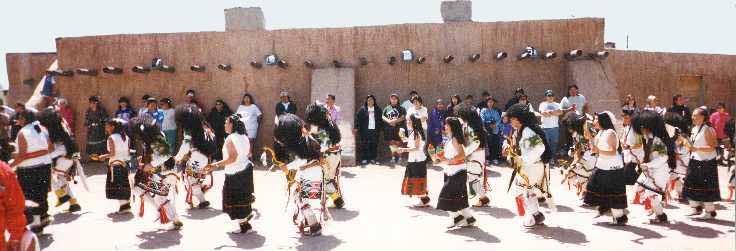
A comic book can fictionalize these issues and make them accessible to people—even to kids, who wouldn't be caught dead reading the news. It can present this alternative perspective in an appealing form. It can convey my passions without being dry or didactic.
This won't work if the characters are mere mouthpieces. They must live and breathe for the stories to do likewise. So I've spent years researching their backgrounds and inventing detailed biographies for them. I want to make them as lifelike as possible.
To me these people have become real. They're facing problems we all face implicitly, but their exposure is much more immediate and acute. They're caught between their age-old traditions and their modern-day sensibilities—living in two worlds, as many have put it.
In other words, they're sweating and struggling intimately with these conflicts, not reading about them in books or newspapers (like me). They're laughing or crying, sinking or soaring, based on the qualities I've given them. Their involvement is intense and personal, which makes for good drama—I hope.
In short, PEACE PARTY combines my literary and philosophical interests in one neat package. Such are my reasons for doing a multicultural comic book featuring Native Americans. Now if only we can get the public to read it. <g>
PEACE PARTY's style and themes
>> [Is PEACE PARTY a series] a la LEGENDS OF THE DARK KNIGHT? Or is this a one-shot? <<
The prototype was a one-shot, but it was supposed to lead to an ongoing series, wealth and fame, and my own talk show. (Uh, just kidding about that last part.) The comic will be an ongoing series, if all goes according to plan.
And it'll have a multicultural cast: perhaps half Indians and half non-Indians of various races. (Let's see...I have one white, one Latino, and one black, half women, among the main supporting characters.) It will explore multicultural issues, but usually in an Indian context. Just as mutant prejudice in X-MEN is a substitute for all kinds of prejudice, Indian/Anglo conflicts will stand as substitutes for all the multicultural conflicts going on today.
Or as one reviewer said about the book Zuni and the American Imagination:
McFeely argues that "our fascination with Zuni is still a fascination with ourselves." She has thought well and hard about Zuni and the American imagination, and she may be right. Perhaps, too, she would agree that Zuni is not only a mirror for its visitors; for many it is also a living testimony to courage and adaptability, and one source, among many, of artistic creativity and spiritual vitality.
I'd say that applies to Indian cultures in general, not just to the Zuni.

Another quote sums up my feelings nicely:
[O]ur ancestors are still there for us and can still speak to our conditions today. If we let them, if we in the present can portray a more complete and complex view of the past, then our children will have a better chance to build a future they will be proud rather than ashamed to remember.
James W. Loewen, Lies Across America
More on writing about Native Americans
Can an outsider write Indian books?
Readers respond
"Why do you protect especially Indians? What did they ever do for you?"
Related links
Origins of PEACE PARTY
Why write about the Hopi?
Culture and Comics Need Multicultural Perspective 2000
Multiculturalism sells!
Some thoughts on minority comics
Why write about superheroes?
Why write fiction: the power of storytelling
* More opinions *
|
|
. . .
|

|
Home |
Contents |
Photos |
News |
Reviews |
Store |
Forum |
ICI |
Educators |
Fans |
Contests |
Help |
FAQ |
Info
All material © copyright its original owners, except where noted.
Original text and pictures © copyright 2007 by Robert Schmidt.
Copyrighted material is posted under the Fair Use provision of the Copyright Act,
which allows copying for nonprofit educational uses including criticism and commentary.
Comments sent to the publisher become the property of Blue Corn Comics
and may be used in other postings without permission.







